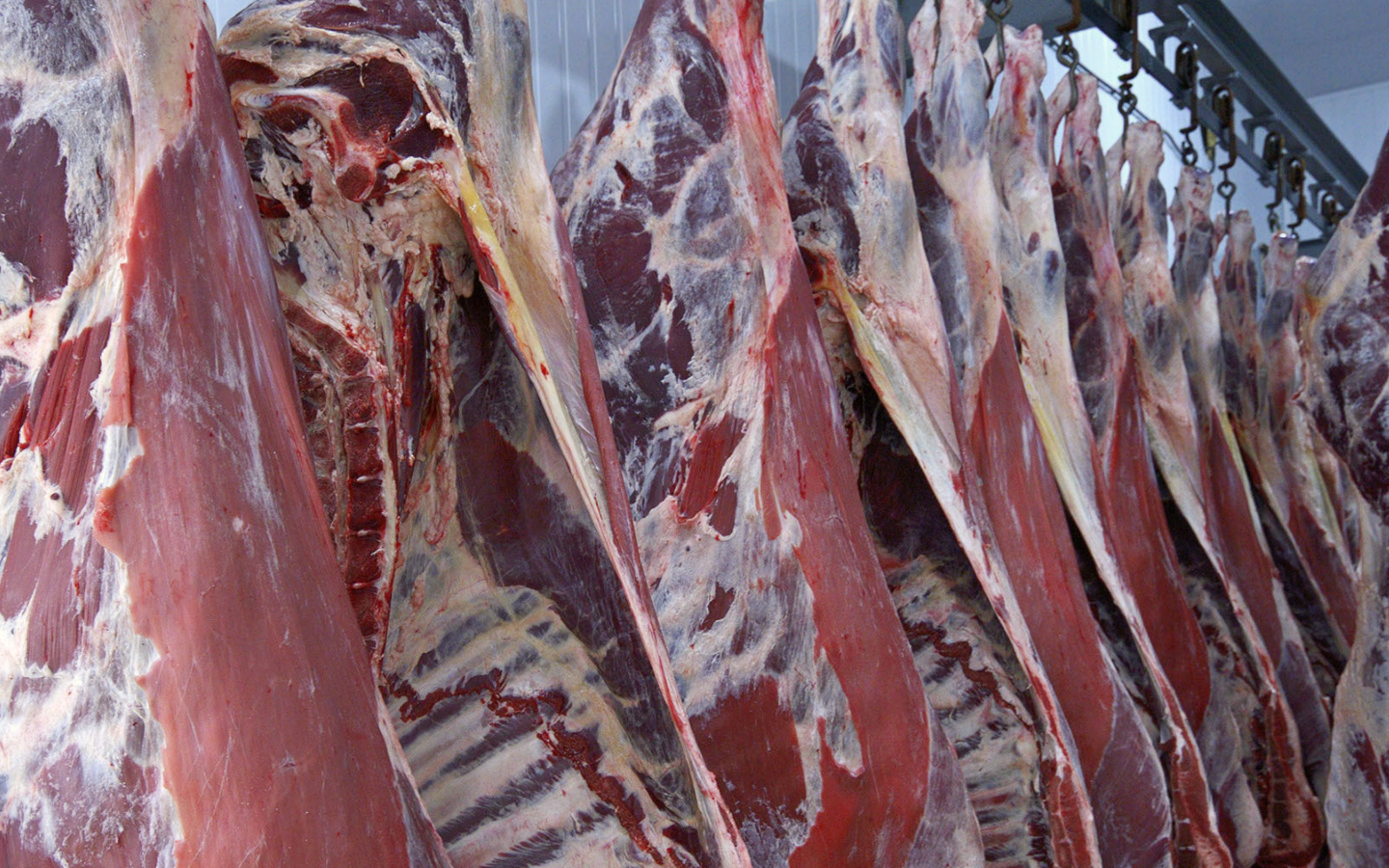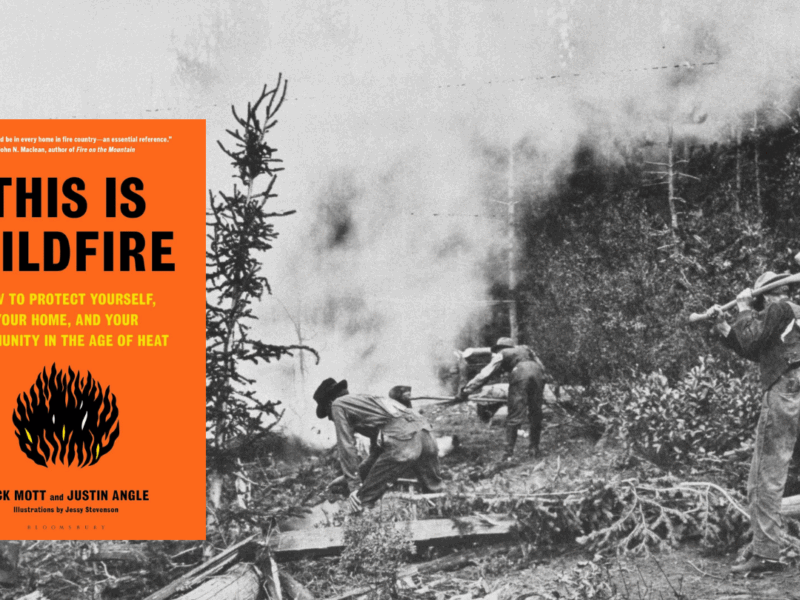The devil you know: Trust and the beef business in northern Arizona
As COVID-19 crashed the meatpacking industry in the summer of 2020, many cattle ranchers stuck with animals searched desperately for ways to get their beef to hungry Americans. Meanwhile, hungry Americans found meat aisle shelves empty and quantities limited to prevent panic buying, and began to search for other ways to buy meat.
For producers who had pivoted to direct-to-consumer marketing before the pandemic hit, the spike in sales was a welcome challenge during an otherwise brutal year. But for those who had instead invested in farm-to-table marketing channels, the pandemic carried a double-whammy: processors were so backed up that the price for live animals plummeted, while their restaurant customers closed up or saw dramatically diminished volume, collapsing demand.
For Bob Prosser, co-owner of the Bar T Bar ranch near Flagstaff, Arizona, it was a reminder of how far they had come, and of how far apart their operation is from the mainstream beef business. The Bar T Bar is one of two ranches to sell most of their product directly to Diablo Burger, “an Arizona local foods-based burger joint” according to their website, with locations in Flagstaff and Tucson. The restaurants are the brain child of Derrick Widmark, who launched them in 2008 while serving as executive director of Diablo Trust, a private conservation collaborative that Prosser had co-founded to fight back during the cattle wars of the early 90s.
“Cow-free by ’93, now that was a real onslaught,” says Prosser. “We formed an alliance to try to resolve these conflicts.” The Bar T Bar and their neighbor, the Flying M, formed Diablo Trust to find an agreement with the Forest Service on management goals that preserved their grazing leases. But even after years of planning, meetings, and negotiation had led to an award-winning progressive management plan, the extra effort wasn’t reflected in the price of their product in the market. So Diablo Trust started exploring ways for the community around Flagstaff that was benefiting from their stewardship to support the ranches. Other local ranchers told Prosser and Widmark to their faces that selling beef locally just couldn’t work. Widmark “took that kind of personally,” says Prosser.
Widmark says, “When Bob says I took it personally, for me what that meant is I wasn’t going to be so easily dissuaded, because I believed in the product, in the story, in the ranches, in the trust, and in Flagstaff as a community that would support us.” The relationships between Widmark and the ranches in Diablo Trust was crucial to the success of Diablo Burger, which launched in 2008, right at the start of the Great Recession. “We knew each other, the ranches and I. They trusted me and I was hellbent on rewarding that trust,” Widmark says. “For most local food ventures, there isn’t that connected-at-the-hip relationship to your most important suppliers, and the kind of deep trust that we had is rare. That’s probably the biggest thing we had going for us.”
“We knew each other, the ranches and I. They trusted me and I was hellbent on rewarding that trust.”
Derrick Widmark, Diablo Burger founder
Twelve years after getting their start during one economic crisis, Diablo Burger and the rest of the world was hammered by COVID. “When the pandemic first hit, back in March of 2020, we were among the first restaurants in Flagstaff and Tucson to transition to take-out only,” Widmark says. Navigating between service to the community and a red alert on the bottom line, Diablo Burger lowered prices and started donating meals to front-line healthcare workers, hungry school kids, and other at-risk community members. They donated close to 600 meals in the first eight weeks of the pandemic.
“We thought this would last a couple of months and figured that if we prioritized supporting public health and helping the community out, that would help us get from here to there,” Widmark says. “The ranching community prides itself on helping others out, and Diablo Burger certainly tries to pay that ethos forward.“
But as the pandemic dragged on, “a funny thing happened” according to Widmark: the governor of Arizona pushed for re-opening the economy, and Diablo Burger was forced to compete against restaurants willing to put their customers and staff at risk. Instead, they made the tough decision to close their Tucson location. It has still not reopened. When that happened, Prosser says, “We had 60,000 pounds of frozen product in cold storage that wasn’t going anywhere. So we had to develop a direct-to-consumer operation to get hamburger to people in Northern Arizona.”
The Prossers were lucky in that respect: with a stockpile of frozen product in cold storage they were spared the impacts of the COVID-caused meatpacking crisis on ranches who wanted to process live animals. “Because of the huge demand [for farmer-direct meat], every ‘backyard’ rancher in the state had beef for sale. But the pinchpoint was slaughter,” says Prosser. The University of Arizona’s Food Products & Safety Laboratory, where Bar T Bar beef is normally processed, was backed up months. The university was relieved, Prosser says, when he told them he could hold his animals over until the backlog was cleared.
Widmark, who hasn’t succeeded in the restaurant business by being easily distracted by things he can’t control, says, “When I poke my head up and look around, it seems to me that COVID has revealed a whole host of systems that were dysfunctional to a fault, teetering on collapse, and grossly imbalanced in favor of the wealthiest and best-connected. If this crisis can help us rebuild things in a better way, re-prioritize our values and how we choose to embody them… well, that would be a welcome and much-needed silver lining.”
Prosser, for his part, sees regional producer cooperatives as the only viable alternative to the current system that stands a chance. Country Natural Beef is the flagship example. (“The only model that has survived is CNB. Study that,” says Prosser.) He has two hopes as we emerge from the pandemic: that frozen point of sale will become a growing market segment (chest freezers were sold out of major retailers during the early days of the pandemic), and that ranchers will see the value of collaboration. “Public land ranchers are as independent as it gets, and unfortunately that’s part of the problem. But it’s worth it to do it.”
Meanwhile, thanks to an outpouring of community support, and the Paycheck Protection Program from the Small Business Administration, Diablo Burger has been able to weather this latest crisis, barely. “You learn a lot about people, who they really are and what they truly stand for, when the proverbial hits the fan,” says Widmark. “So I consider us extremely fortunate to have the kinds of friends that we do.“





